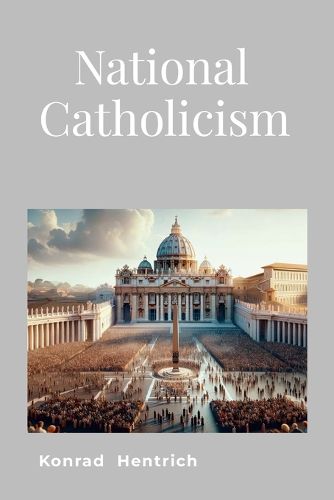Readings Newsletter
Become a Readings Member to make your shopping experience even easier.
Sign in or sign up for free!
You’re not far away from qualifying for FREE standard shipping within Australia
You’ve qualified for FREE standard shipping within Australia
The cart is loading…






The Catholic Church is thought of as a monolithic organization where everything is the same, or nearly the same, wherever she is found on God's green earth. Intrinsically that this is only somewhat so. There are, particularly since Vatican II, differences in language, rite and practice in every country, and perhaps in every locale. In Europe, homeland of the Faith, the various national Catholic churches remain quite different even in the realm of theology and adhesion to national ideals and goals. Dr. Hentrich writing in 1934, just after the National Socialists came to power in January 1933, wishes to note the advantages that a strong national Catholic church, such as that of the French confers on the nation. He also notes the history of the French church and its control of papal policies concerning its own realm, as opposed to German Catholics who have toed the line and had a weak national church with profound effects upon the German people. However, since 1945 the German church has been governed by leftist socialists with the doctrinal and ecclesial ferment for which they are now noted. All in all the work provides a history of Catholicism in France that breaks with the usual tame ecclesiastical history to give us a more unvarnished look at National Catholicism.
$9.00 standard shipping within Australia
FREE standard shipping within Australia for orders over $100.00
Express & International shipping calculated at checkout
The Catholic Church is thought of as a monolithic organization where everything is the same, or nearly the same, wherever she is found on God's green earth. Intrinsically that this is only somewhat so. There are, particularly since Vatican II, differences in language, rite and practice in every country, and perhaps in every locale. In Europe, homeland of the Faith, the various national Catholic churches remain quite different even in the realm of theology and adhesion to national ideals and goals. Dr. Hentrich writing in 1934, just after the National Socialists came to power in January 1933, wishes to note the advantages that a strong national Catholic church, such as that of the French confers on the nation. He also notes the history of the French church and its control of papal policies concerning its own realm, as opposed to German Catholics who have toed the line and had a weak national church with profound effects upon the German people. However, since 1945 the German church has been governed by leftist socialists with the doctrinal and ecclesial ferment for which they are now noted. All in all the work provides a history of Catholicism in France that breaks with the usual tame ecclesiastical history to give us a more unvarnished look at National Catholicism.